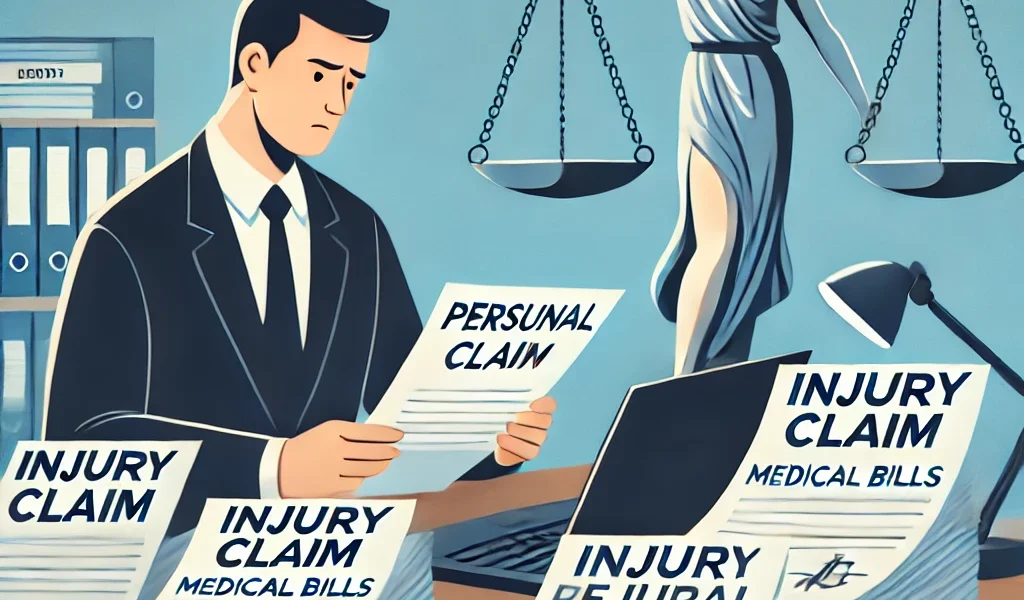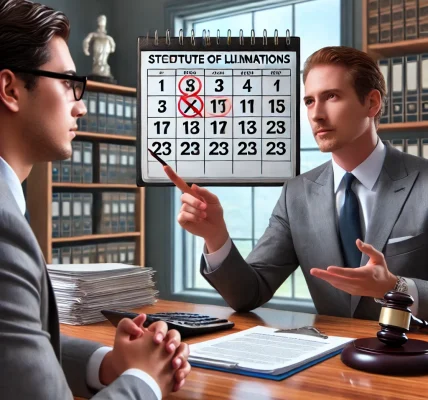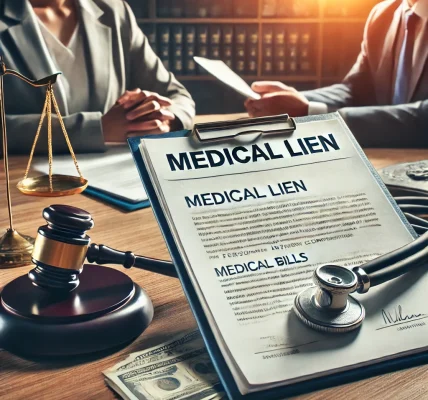Introduction
If you have suffered an injury due to someone else’s negligence, you might be wondering whether you need a lawyer to file a personal injury claim. While hiring a legal professional can provide significant advantages, some individuals choose to handle their claims independently.
This article explores whether you can file a personal injury claim without a lawyer, the potential challenges, the steps involved, and when it might be best to seek legal representation.
Is It Legal to File a Personal Injury Claim Without a Lawyer?
Yes, you can legally file a personal injury claim without a lawyer. The law allows individuals to represent themselves, a process known as pro se representation. However, handling a claim alone can be challenging, especially if the case is complex or involves a significant amount of compensation.
When Filing a Claim Without a Lawyer May Be an Option
Filing a personal injury claim without a lawyer may be a reasonable option in the following situations:
- Minor Injuries – If your injuries are minor and do not require long-term medical treatment, you may be able to negotiate a fair settlement with the insurance company on your own.
- Clear Liability – If the fault of the other party is undisputed and there is strong evidence supporting your claim, handling the process yourself may be more straightforward.
- Simple Insurance Claims – If the insurance company accepts liability and is willing to negotiate fairly, you may be able to settle without a lawyer.
- Small Claims Court Cases – If the claim amount is within the small claims court limit (varies by state), it may not be cost-effective to hire an attorney.
When You Should Consider Hiring a Lawyer
While handling a claim alone may be possible, some situations strongly warrant hiring a personal injury lawyer:
- Severe or Long-Term Injuries – If your injuries require ongoing medical care, a lawyer can help ensure you get the compensation needed for future expenses.
- Disputed Liability – If the other party or insurance company disputes fault, legal expertise is necessary to build a strong case.
- Denial or Low Settlement Offers – Insurance companies often try to minimize payouts. A lawyer can negotiate on your behalf.
- Multiple Parties Involved – If your injury involves multiple liable parties, the legal process can become complicated.
- Legal Deadlines Approaching – Missing the statute of limitations (deadline for filing a claim) can result in losing your right to compensation.
Steps to Filing a Personal Injury Claim Without a Lawyer
If you decide to handle your claim alone, follow these essential steps:
1. Gather Evidence
To support your claim, collect:
- Accident reports (e.g., police reports, incident reports)
- Photographs and videos of the accident scene, injuries, and property damage
- Witness statements from people who saw the incident
- Medical records and bills documenting your injuries and treatment
- Proof of lost wages if you missed work due to the injury
2. Notify the At-Fault Party’s Insurance Company
Inform the responsible party’s insurer about your injury and intent to file a claim. Provide basic details but avoid making recorded statements without preparation.
3. Calculate Your Damages
Determine the total amount of compensation you should seek, including:
- Medical expenses (past and future)
- Lost income due to missed work
- Property damage (if applicable)
- Pain and suffering (emotional distress, reduced quality of life)
4. Draft a Demand Letter
A demand letter formally requests compensation and outlines:
- The facts of the accident
- The injuries sustained
- The medical treatments received
- The total amount of damages
- A request for a specific settlement amount
5. Negotiate with the Insurance Company
After sending the demand letter, expect the insurance company to respond with a settlement offer. Be prepared to negotiate.
- If the offer is too low, provide additional evidence to justify your demand.
- Avoid accepting the first offer without careful consideration.
6. Consider Mediation or Small Claims Court
If negotiations fail, you may:
- Use mediation (a neutral third party helps settle the dispute).
- File a case in small claims court if the compensation amount is within the court’s limits.
7. File a Lawsuit If Necessary
If the insurance company refuses to offer fair compensation, filing a lawsuit may be necessary. This process can be complex, and having a lawyer may be beneficial at this stage.
Potential Challenges of Handling a Claim Alone
While you can handle a personal injury claim on your own, several challenges make it difficult:
- Legal Complexity – Personal injury laws vary by state, and understanding legal procedures can be overwhelming.
- Negotiation Tactics by Insurance Companies – Insurance adjusters are trained to minimize payouts. Without legal experience, you may accept a lower settlement than you deserve.
- Proving Damages – Assigning a value to non-economic damages like pain and suffering can be difficult without legal knowledge.
- Time-Consuming Process – Filing a claim requires extensive paperwork, negotiations, and potential court appearances.
Conclusion
Filing a personal injury claim without a lawyer is possible, especially for minor injuries with clear liability. However, the process requires strong evidence, negotiation skills, and knowledge of legal procedures. If your case involves serious injuries, disputed liability, or low settlement offers, hiring a personal injury attorney can maximize your compensation and protect your legal rights.
Before deciding to handle your claim alone, consider the potential risks and complexities involved. If needed, consulting a lawyer for an initial free case evaluation can help determine the best course of action.
Disclaimer: This article is for informational purposes only and does not constitute legal advice. Consult a professional attorney for legal guidance on your specific case.




